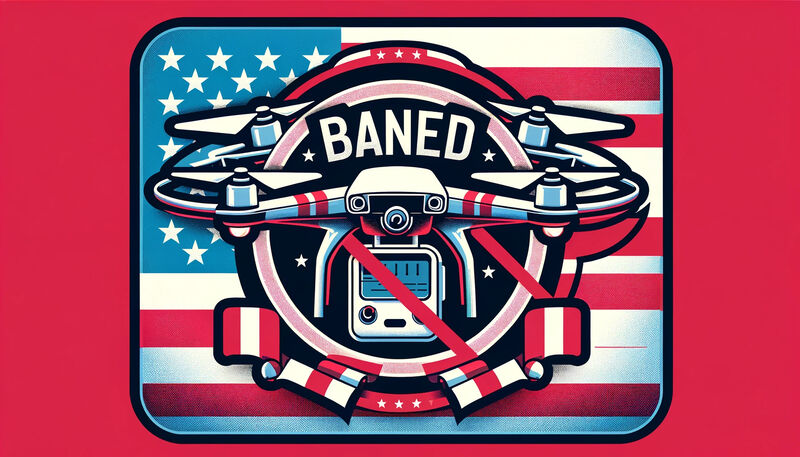U.S. Moves to Ban DJI Drones Citing National Security Concerns

The U.S. Congress is setting its sights on DJI, the China-based drone manufacturer that has dominated both consumer and commercial drone markets globally. Citing national security risks, bipartisan legislation is underway that aims to place DJI on the Federal Communications Commission's (FCC) communications infrastructure blocklist, which could end DJI's business operations in the U.S. effectively.
The Case Against DJI
DJI, known for its wide range of drones used in various sectors such as agriculture, delivery services, and by content creators, is now under scrutiny not for the intended use of its products but for potential misuse. U.S. lawmakers express concerns over the 6% ownership stake held by Chinese state-owned enterprises in DJI, fearing that this could lead to vulnerabilities like backdoors in DJI’s software and contribute financially to the Chinese Communist Party (CCP).
Security Concerns and Legislative Actions
The fears are compounded by reports of DJI drones being employed in military activities, such as during Russia's conflict in Ukraine, and for surveillance purposes against Uyghur Muslims in Xinjiang. Representative Elise Stefanik has voiced a strong stance against DJI, stating, "DJI presents an unacceptable national security risk, and it is past time that drones made by Communist China are removed from America."
DJI's Defense
DJI has refuted these accusations, emphasizing that their drones are designed for civilian use and are not intended for surveillance or military applications. Regina Lin, a spokesperson for DJI, asserted the company's commitment to ethical practices and denied any involvement in human rights violations.
Implications of the Ban
Should the legislation pass, DJI would face a ban on sales within the U.S., severely impacting its 58% market share in the commercial drone sector as of 2022. This move could force DJI to exit the U.S. market, similar to the actions taken against other tech companies like Huawei and YMTC, and the ongoing efforts to ban TikTok.
Conclusion
The proposed ban on DJI raises significant questions about the balance between national security and market competition, echoing broader tensions between the U.S. and China. As the situation develops, the impact on the drone market and international trade relations will likely be profound, with wide-ranging consequences for global technology and security landscapes.

